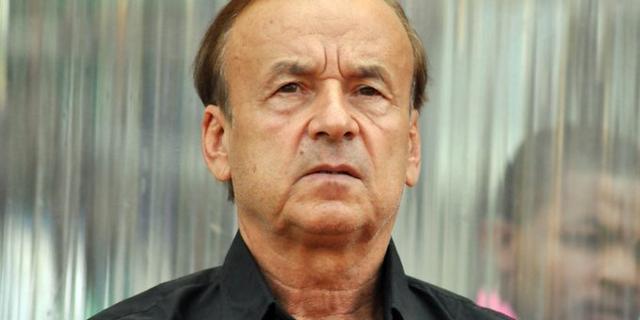After yet another routine, uninspiring win, it is worth considering the effect the German’s coaching has had on, not just the national team, but the entire fanbase.
You would be surprised to learn just how difficult it is to answer this question with any consensus. Coaching has never been more scrutinized than it is today, and yet somehow the impact a coach can make on a team remains seriously underestimated.
Some of that is a consequence of the cult of personality on which certain modern practitioners of the profession hinge their work, of course. This creates a paradoxical dynamic that on one hand imputes God-like infallibility to the coach, but on the other hand paints a picture of him as hamstrung by his tools. You can see the appeal – influence without responsibility – so it is a little surprising how much traction this has gained within footballing fandom.
Nigeria, of course, does not have this problem. Its national team, the Super Eagles, is managed by Gernot Rohr, a dour 68-year-old whose one significant success in management was guiding Bordeaux – with the likes of Zinedine Zidane and Bixente Lizarazu – to a UEFA Cup Final in the mid-90s. Since then, his career has served to emphasize the point that greatness is not necessarily transmitted by osmosis, as he bounced around a number of modest jobs in France before starting a missionary tour of Africa’s national teams.
READ ALSO: PDP chieftain urges IPOB to stop violent campaign in Southeast
All the way, his gospel has stayed fairly consistent. Lacking the charisma (by his own admission, he prefers the background) and force of personality to inspire aspiration, he has always declared himself dependent on the level of talent available to him. When the Super Eagles failed to make it out of the Group Stage at the 2018 World Cup, he bemoaned the team’s youth. When asked, in the subsequent years, whether they were ready for the challenge with a few more years of experience under their collective belt, he decried the modest standing of their clubs.
All that was just about acceptable. To corrupt a Yoruba saying, if the coach cannot improve one’s estate, he should at least not make it any worse. As such, par was to a degree defensible.
However, the past two years have seen a predictable downward trend. Because, of course, par is not what a coach should aim for or be about. Because if the only difference maker is the level of the players, then why pay coaches all that money to do nothing? Because if you are standing still, you are in fact going backwards.
The Super Eagles head into matchday six of CAF 2022 World Cup qualifying with the prospect of missing out on the Playoff Round a very real one. This captures the trend succinctly: four years ago, in a group featuring Africa’s highest-ranked team and two of the continent’s previous four champions, Nigeria qualified with a game to spare. This time, faced with the combined might of Central African Republic, Liberia and Tuesday’s opponent Cape Verde, it has come down to a winner-takes-all showdown. Then, by this same stage, Nigeria had scored 11 goals in five; this time, Rohr’s charges have only been fired off eight times.
A draw will suffice against Cape Verde, but already the mood amongst the fanbase is far from sunny. The reason for that is simple: they have witnessed their team struggle against mediocre opposition, again and again, all the while putting forth forgettable performances devoid of even the most basic enterprise.
It is one thing to win without playing to one’s highest potential – that is even desirable from time to time. It is quite another to do so while being outplayed by a Lone Stars team whose most influential attacker – Kipah Sherman – is based out of Malaysia and was unavailable in any event. On Saturday in Tangier, one team played with clarity, moved the ball through the thirds with composure and technical assurance, created and exploited overloads in wide areas and evinced comfort in possession, and it was not the Super Eagles.
That should set alarm bells going. Thankfully it has; most realize the implication of struggling against such limited opposition when there is a playoff against another group winner to come in March next year and, more immediately, the Africa Cup of Nations (AFCON) in January. The likes of Mali, Egypt, Cameroon or Cote d’Ivoire have the attacking quality that the Liberians lacked last night, will be highly motivated with a place in Qatar on the line, and are less likely to be panicked by hopeful, low-percentage long balls from the defence in the general direction of Victor Osimhen.
Nigeria had two windows within which to recognise Rohr’s philosophy of coaching was never likely to elevate this group. The first was in the aftermath of the aforementioned 2018 World Cup disappointment; the second following AFCON the next year. In both those defeats – to Argentina and Algeria – the central theme was the same: there was an opportunity to seize the initiative against technically superior but flagging opponents, and the German baulked.
Neither portent was heeded, and so here we are. Nigeria may well get the job done on Tuesday, but there will be little excitement and anticipation accompanying it. Instead, there will be trepidation at what is to come, a trembling in the face of opportunity.
So, what exactly does a coach do? He rubs off his personality on an entire fanbase.













